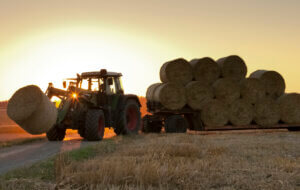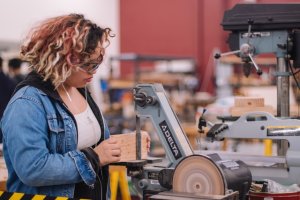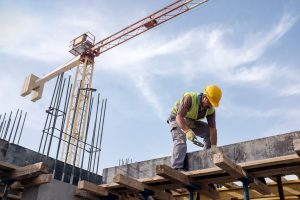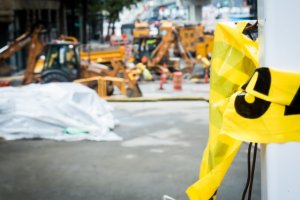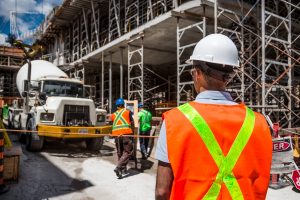Scaffolding Accident Claims
Make a Scaffolding Accident Claim
Scaffolding work carries a very high risk of injury. Sadly, when accidents happen they tend to cause serious injuries. Our lawyers have helped those who have suffered head, spinal and severe orthopaedic injuries following a scaffolding accident. Read on for further advice and help in making a claim.
“They punch well above their weight. The quality of service they provide equals that of any of the larger top-name firms in this area.”
“Fielding a first class, very well resourced team of litigators, the personal injury department at Osbornes is rated for its diverse workload of complex, high-value injury claims.”
Introduction to Scaffolding Accident Claims
Scaffolding work carries a very high risk of scaffolding injury, which is why there are strict legal regulations on how scaffolding work should be planned, carried out and supervised. Only experienced and qualified scaffolders should erect and dismantle scaffolding and only they should be working on roofs and at heights. However, this industry is characterised by a large number of small private companies, often using unskilled or inadequately trained workers to carry out often complex and dangerous work, resulting in a high number of scaffolding injuries.
Common scaffolding injuries
The most common type of scaffolding accidents in the scaffolding industry are falls from height and falling objects. Falls from heights are particularly serious because of the severe scaffolding injuries that often result. Occasionally fatal injuries are sustained and sometimes serious spinal injuries; severe orthopaedic injuries are common. In recent years safer means of working from height such as rope access have been introduced which led to a 25% reduction in injuries last year but there are still too many scaffolding accidents.
What types of scaffolding injuries can I claim for?
We have helped clients claim compensation for a wide range of scaffolding accident injuries including:
- Ankle Injury Claims
- Arm Injury Claims
- Back Injury Claims
- Elbow Injury Claims
- Finger Injury Claims
- Hand Injury Claims
- Hip Injury Claims
- Knee Injury Claims
- Leg Injury Claims
- Neck Injury Claims
- Shoulder Injury Claims
- Wrist Injury Claims
Duty of care relating to scaffolding
Most construction accident claims involving scaffolding are successful because the law allows a claim to be made against any person or party responsible for the scaffolding if some fault can be shown. So it might be that the main site contractor failed to check the scaffolding for safety during the dismantling process, or a colleague made an error in putting up a part of the scaffolding, or there was a design fault with the structure.
Workers are also owed special safety duties by their employers, especially in terms of equipment and training, so if for instance hard hats and safety harnesses are not provided then the employee will be able to claim against the employer if an accident results from that breach of duty.
Training can be general and specific, so if a scaffolder does not have the proper training, such as under the Construction Industry Scaffolders Record Scheme, then he should not be working on scaffolding at all. We often have cases of scaffolder labourers carrying out the job of a trained scaffolder, and unsurprisingly they are more likely to be involved in accidents, often serious ones. There will also be particular requirements of any job that should be identified in the risk assessment, and the scaffolders and their labourers should be trained and instructed properly.
Scaffold accident investigations are often thorough, involving the main site contractor, and sometimes the Health and Safety Executive will get involved and may prosecute those responsible. We are entitled to see the documentation surrounding the job and the accident and its investigation, and to carry out our own enquiries, to get to the bottom of who caused the accident.
Scaffolding Accident Claim Case Studies
£100,000 in compensation for Scaffolding Accident
Mr T was a Somali national with refugee status in the UK which allowed him to work. He worked for a scaffolding firm as a labourer, although he had received some limited scaffolding training on the job and had been promised that he would soon be sent on the training courses necessary to work as a qualified scaffolder.
He was working on a job at a construction site in South London; he was effectively doing the job of a scaffolder, under supervision by his foreman. The job involved the demolition of an old school, and towards the end of that job the scaffolding had to be dismantled.
That dismantling work was carried out in part the previous night and was not checked by a foreman or qualified scaffolder, so when in the morning Mr T climbed the scaffold to continue work, there was a walkway two storeys up that was defective. Some of the planks were not properly supported from below. As a result, Mr T fell through the scaffold to the ground level.
Investigations revealed that a colleague had made a mistake in removing load-bearing scaffold poles before the walkway had been dismantled. His supervisor also failed to check the walkway and so did the main site contractor.
There was a delay in supplying the necessary documents to us so we issued court proceedings against the scaffolding company and the main site contractor.
Mr T sustained fractures to the vertebrae in his lower back. He recovered and was able to work, but not in physical manual work and so he could not go back to his old job. He had to retrain and he took up less well-paid driving work.
Liability was admitted by the defendants and the case was settled at a pre-trial meeting. Mr T was paid compensation for the pain and suffering caused by his injuries and for the past loss of earnings whilst he was unable to work, and for the future losses from being paid less than he was earning (and would have earned on promotion) as a scaffolder. He received £100,000 in compensation.
£13,000 compensation for scaffolder
Mr S was a scaffolder. He was working on-site, dismantling a scaffold with some colleagues. He had just climbed down off the scaffold to the ground level whilst above him one colleague was passing an 8-metre pole by hand from the second level to another colleague at the first level. The colleague at the lower failed to grasp the pole properly and it slipped through his hands, falling straight down to the ground below.
Fortunately, the pole did not land on Mr S – that would probably have killed him. But it bounced and caught him in the face. He required an operation to fix the fracture to the cheek and eye socket that it caused. He was left with a visible and permanent scar and a palpable plate beneath it. Mr S’s employers accepted liability for the negligence of their employees and agreed to settle the claim for about £13,000.
Claim for Lithuanian scaffolding assistant
Our client, a Lithuanian scaffolding assistant, was required to work on a roof of a building. Ironically he was erecting a safety rail around the edge of the roof, when he stepped onto an unprotected skylight, falling through onto a concrete floor some 10 feet below.
We acted for Mr M, a Polish scaffolder living in Camden. He was sent on a job where he was required to climb from one platform to another on the side of a building by way of a ladder. The ladder had been put in place by a colleague. It was leaning at an angle into the building but it had not been tied at the top, and so as Mr M climbed up to the top it fell away from the side of the building and he fell two floors to the ground below.
Six figure compensation settlement for scaffolding claim
Mr M sustained fractures to both legs, including a pylon fracture (multiple breaks along the shin bones). He required metal plating and whilst the fractures healed he was no longer able to work in that occupation. He recovered six figures in damages and used the money to set up in a new career as a restaurant owner.
How Osbornes Law can help with Scaffolding Accident Claims
We deal with many accident at work claims where workers fall from scaffolding because mistakes were made by others.
By choosing Osbornes Law for your claim, you will benefit from:
- Support in every aspect of your claim – our service goes beyond just handling the legal aspects of your claim. We work with a network of healthcare professionals, charities and support groups to ensure that you are connected to the best possible services while we fight for your right to compensation.
- Expertise – our accident solicitors have extensive experience in handling claims involving all types of injuries. We understand the complexities involved and know how to build strong, evidence-based cases that maximise your chances of success.
- Personalised service – Our team is always available to answer any questions you may have and provide support every step of the way.
- No-win no-fee – injury claims can usually be funded through a no-win no-fee agreement. This means that you will not have to pay any upfront fees or legal costs unless we win your case.
Client StoriesVIEW ALL
- 13.3.2024
Accident at Work Compensation Examples
Factory Worker Receives £14,000 for Hot Water Burns Our client was working in a food producing factory. He was injured when...
Read more - 11.4.2023
£250,000 settlement for client injured in forklift accident
Sophie Davies, a specialist personal injury lawyer at Osbornes Law, recently represented a client who suffered life-changing injuries following a...
Read more - 17.11.2021
£100,000 settlement for tripping at work
Osbornes Law secures £100,000 settlement for Hungarian woman who tripped over a shopping bag at work Siobhan McIvor, a Partner in...
Read more - 17.11.2021
£165,000 settlement for factory accident
Siobhan McIvor, a Partner in the Personal Injury Department of Osbornes Law, has settled a £165,000 accident at work claim, with...
Read more - 31.8.2021
Kitchen Accident Claim
Our client, a hospitality supervisor instructed Osbornes after he slipped and fell on oil and food debris on the floor...
Read more - 18.5.2021
Construction Site Accident at Work
Our client suffered numerous fractures to their left leg requiring surgery following a work accident on a construction site. He...
Read more - 18.5.2021
Compensation for Amputation on Construction Site
Our client worked as a carpenter/bricklayer on a building site at a residential property in North London. He was...
Read more - 15.10.2020
Fatal Accidents In The Workplace
A new article from the BBC takes a looked at fatal accidents at work. The report states that since 1981, there...
Read more - 2.9.2020
Lasting damage to ankle following construction accident settles...
Sam Collard, a Partner in the Osbornes’ catastrophic injury team, recently settled a construction accident claim for a Romanian man...
Read more - 13.8.2019
Fatal Accident Conviction Highlights Health & Safety
Construction bosses guilty of gross negligence manslaughter Conrad Sidebottom, 46, and Richard Golding, 43, were jailed for their part in causing the...
Read more
Our Personal Injury Team View the whole team
Rob Aylott
Partner
Personal Injury SolicitorsSam Collard
Partner
Personal Injury SolicitorsSophie Davies
Partner
Personal Injury SolicitorsLaura Swaine
Associate Solicitor
Personal Injury SolicitorsNicola Hall
Associate Solicitor
Personal Injury SolicitorsAndrew Middlehurst
Associate Solicitor
Personal Injury SolicitorsView the
whole team



